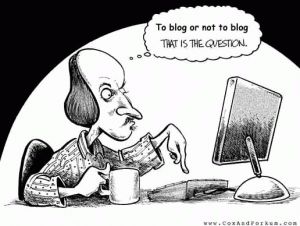This content has been archived. It may no longer be relevant
 By now it’s pretty old news that “Gay Girl in Damascus” was not. It’s possible that old-fashioned journalism might have spotted the ruse, but maybe not. In advertising, it’s becoming more common to blog up products and campaigns via lifestyle messaging. It’s one thing when our industry opens talks about a campaign, but another when it’s launched sub-rosa.
By now it’s pretty old news that “Gay Girl in Damascus” was not. It’s possible that old-fashioned journalism might have spotted the ruse, but maybe not. In advertising, it’s becoming more common to blog up products and campaigns via lifestyle messaging. It’s one thing when our industry opens talks about a campaign, but another when it’s launched sub-rosa.
I was reading an article about how software could have revealed fake blogger (see below), but that made me wonder – should I care? Our industry is subject to truth in advertising laws and regulations and more often than not, a competitive product will do the work for you (think DirecTV vs. Dish), but in the blogging world, it seems like anything goes.
I’m not sure where I’m going to land on this subject just yet. I’d like to hear your thoughts and ideas on the subject. I’ll give a few thought topics – discuss.

